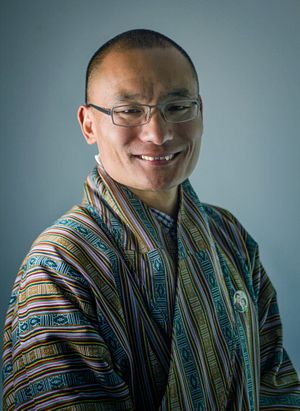The prime minister of Bhutan, Tshering Tobgay, is currently on a nine day visit to India, intended to boost the already strong ties between the two countries. In 1949, India and Bhutan signed a Treaty of Friendship, which allowed India to “guide” Bhutan’s foreign policy. Bhutan is a completely sovereign country that conducts its own foreign affairs, but owing to the legacy of that treaty, Bhutan’s foreign policy still usually aligns with the Indian position. A new Treaty of Friendship was signed in 2007, removing the provision that India ought to “guide” Bhutan’s foreign relations. There is no resentment toward India in Bhutan and relations between the two countries are friendly.
Bhutan is especially closely aligned with India because of its poor relations with China. Bhutan’s culture and language are very close to Tibet’s and relations between Bhutan and China have been cool since the People’s Liberation Army “liberated” Tibet in 1950. The two countries additionally have an outstanding border dispute. Although Bhutan has improved relations with China recently and has attempted to develop a more diverse foreign policy, its closest partnership is still with India. In 2014, Bhutan was the first country visited by India’s Prime Minister Narendra Modi after his election.
Prime Minister Tobgay attended the Vibrant Gujarat Global Summit from January 11-13, a huge investor’s summit attended by numerous businessmen as well as Prime Minister Narendra Modi. According to many, Prime Minister Tobgay stole the limelight at the summit with a well-received speech (partially in Hindi), prompting a businessman to declare that the function had become a “Vibrant Bhutan” summit. Tobgay said that while he wanted to go on a pilgrimage to the Buddhist site of Bodh Gaya, where the Buddha attained enlightenment, he decided to “take an economic pilgrimage ahead of his spiritual pilgrimage.”
Tobgay did an excellent job marketing his country, pointing out that although Bhutan’s Gross Domestic Product (GDP) is less than the total net worth of many of the attendees at the summit, the country uses its limited resources wisely in providing free healthcare and education. Ultimately, he said, Bhutan values gross national happiness more than wanton industrialization. According to Tobgay, Bhutan is open for business in order to share its happiness with the world, but “only for clean, green, and sustainable businesses, like hydropower and organic agriculture.” Tobgay pointed out that India and Bhutan have a lot to gain from each other, especially since Bhutan has open access to the Indian market.
Later on, Prime Minister Tobgay went on his pilgrimage to Bodh Gaya, acquiring a sapling from the Mahabodhi Tree, under which the Buddha achieved enlightenment, to plant in Bhutan. He then met with India’s president, Pranab Mukherjee. The two men reaffirmed the friendship between their two nations and pledged to continue to work together and cooperate on security issues.

































